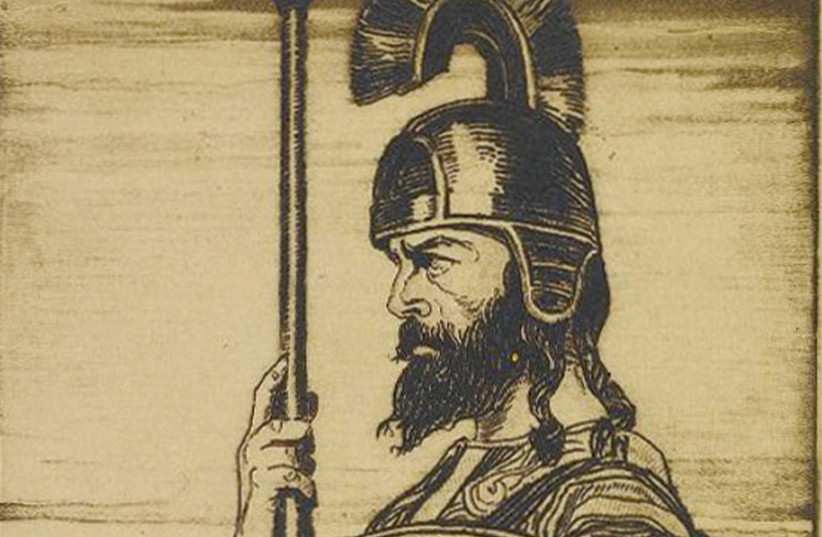Despite the widespread libel in Germany that German Jewry stabbed their country in the back in World War I, 12,000 Jews died in action fighting for the kaiser. Sir Martin Gilbert wrote: “When the war ended in November 1918, Jewish soldiers, sailors and airmen had filled the Rolls of Honor, the field hospitals, and the military cemeteries, side by side with their compatriots under a dozen national flags.” The lie that Jews occupied cushy positions in the army and avoided the trenches presaged the virulent antisemitism that was to come.
Martin Buber fervently supported the war when it broke out in 1914. This should come as a surprise to many readers who identify the great 20th-century theologian and Jewish thinker with Brit Shalom, an organization in the pre-World War II yishuv that advocated peace with the Arabs and a binational state. In his groundbreaking short biography of Buber, Hebrew University historian Paul Mendes-Flohr does not shy away from the theologian’s initial enthusiasm for Germany’s entry into the war. Only later, under the influence of his friend and collaborator Jewish intellectual Gustav Landauer, did Buber condemn the Great War as “chauvinistic nationalism” and called for its end.
Buber’s support of the war is expressed in his words cited by Mendes-Flohr – despite “the horrors and bitter anguish of this war,” it constitutes a moment of grace, a “terrible grace, the grace of a new birth.” Buber saw in the world war, “a new age of realization.” Individuals, for the theologian, are bound in a “transcendental” community dedicated to the Volk (people) and the Fatherland. This was the “metaphysics of war,” a unifying moment that would bring together all Germans in the higher purpose of sacrifice for a great cause.
For Buber, the Jewish soldier in the kaiser’s army was a modern Maccabee. The historian paraphrases Buber’s address to an audience of Zionists in Berlin at a Hanukkah party: “In the Maccabean revolt, the Jewish warriors overcome malkhut yavan ha-resha’ah – the evil domination of Hellenistic Greece – the symbol of the world’s fundamental evil, which the hassidic master Rabbi Nachman of Breslov identifies with egoistic desire. This desire enslaves contemporary bourgeois civilization to instrumental ends, which by their very nature destroy the fabric of human solidarity. The vanquishing of malkhut yavan was thus in the deepest sense an act of self-purification – symbolized by the rededication of the Jerusalem Temple.”
Little did it matter that the Jewish soldier fighting for the Fatherland in WWI was battling and dying for a non-Jewish power. The act of war purges the Jewish soldier of modern idolatry. Landauer condemned the “War Buber” for romanticizing nationalism and patriotism. But Landauer was mistaken; Buber did not praise the “Jewry of Muscle” of the great Zionist Max Nordau. He did not see the Jewish warrior for Germany through the lens of Vladimir Jabotinsky’s nationalism. Buber saw the Jewish warrior’s sacrifice as a transcendental purging of the inner ego, the hassidic bitul ha-yesh – the annihilation of the self. The Jewish philosopher is not glorifying the Jew with a rifle. He sees a higher purpose for the Jew fighting for the Fatherland in the throes of war.

As terrible as World War II was, the world war that preceded it was a bloody affair. The Jew in the trench who died for the Fatherland did not embody Martin Buber’s annihilator of the self. I think the greater accomplishment of the Jewish soldier in the Great War was abandoning the meek victim for a determined fighter. Those Jews led by Jabotinsky and Yosef Trumpeldor in the Zion Mule Corps and in the Jewish Legion were the modern Maccabees. But the fact that Buber understood that Jews had to go to war and fight is to his credit. His later condemnation of the First World War does not diminish his enthusiasm for the kaiser’s Maccabees. The brave German Jews who fought – many who survived and were decorated – forever crush the lie that the Jew is a coward. We are the sons and daughters of the Maccabees and heir to all Jewish men and women who showed bravery in battle.
The writer is rabbi of Congregation Anshei Sholom in West Palm Beach, Florida.
